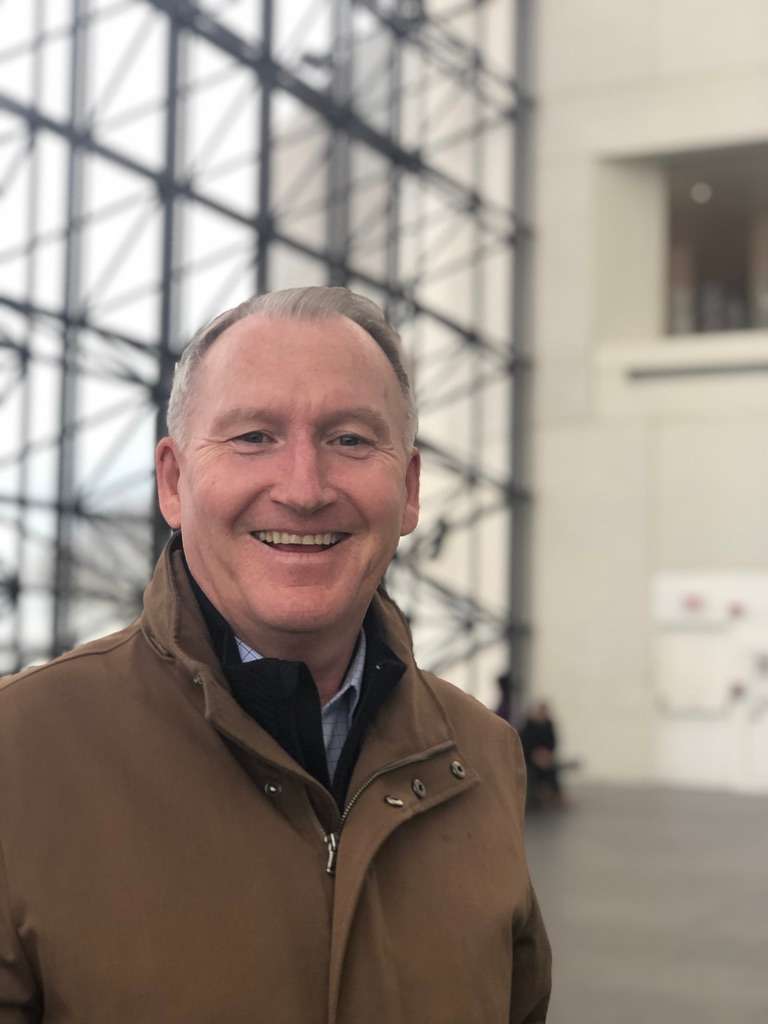
By CRISTINA JANNEY
Hays Post
After the recent retirement of the longtime director at the Hays Ag Research Center, an interim director has been appointed.
Dan Devlin, 63, will serve as the interim head of the Western Kansas Research and Extension Centers.
Devlin, who has a doctorate in agronomy, has spent 35 years in agriculture research.
Bob Gilliam, Ph.D., had been in the role for many years, but retired in August.
Anticipating Gilliam's retirement, K-State organized a search committee for Gilliam's replacement, but then pandemic hit, and the college did not think it could perform an adequate search for a new director under the circumstances, Devlin said.
K-State was also concerned about the effects of pandemic on the state's budget and subsequently on research and extension's budget.
Devlin said the search process will likely take at least a year, maybe two. During that time, Devlin will serve as the interim head of the Western Kansas centers.
"We are committed to getting somebody full time, and we'll do a national search to get the best person we can find."
The western Kansas region covers Hays, Garden City, Tribune and Colby.
Devlin's background
Devlin grew up on his family's Smith County farm, which the family still operates.
When he was a child he attended the Fort Hays State University roundups for livestock judging competitions. He also was acquainted with the Hays ag research station through his father's attendance at field days.
Devlin received his bachelor's and master's degrees in agronomy from K-State and earned his Ph.D. from Washington State University.
He served as agronomist in the Northeast Kansas Extension office in Manhattan before taking a position as a faculty member in agronomy at K-State. He served as a water quality specialist.
He was serving as the head of the Water Resources Institute in the Kansas Center for Agriculture Resources and the Environment immediately before assuming the interim role he is in now.
He also managed the fertilizer research program.
As a water quality researcher he spent much time in Western Kansas. During that time, he also performed feedlot air quality research.
Devlin still lives in Manhattan. He is in Western Kansas Tuesdays through Thursdays.
Research is continuing at the ag research farm in Hays. Becuase the Hays farm has a feedlot, it does research on distiller's grains, as well as range land cow-calf grazing practices.
"Many of the wheat varieties in Western Kansas have been developed right here in Hays," he said.
The farm also has a sorghum millet breeding program.
"There is so much more going on out here than I ever thought there was," Devlin said. "That has been what has been exciting. I hope to make a difference while I'm here and bring in a few ideas while I'm here."
Cotton, alternative crops
Research and extension has also tried to expand cotton as a cash crop in Kansas, although not necessarily in Hays because of its northern location.
Cotton was grown in Kansas starting about 20 years ago. Cotton likes heat and is drought tolerant. If temperatures continue to climb as climatologists predict, cotton may be a alternative to other irrigated crops such as corn, Devlin said.
"Is the environment going to continue to change? In 20 years will it be a little warmer? Will Hays be more like Garden City?" Devlin said. "We are looking ahead at what might happen in 10 or 20 years."
During the last year, the state had 200,000 acres in cotton. Devlin said he would like that number to increase to 500,000 by 2030.
A farmer can reap the same economic benefits from cotton as from irrigated corn with one-third to two-thirds less water.
"Farmers have told us one of the things they would like us to do is look for other crops," Devlin said. "Right now we have wheat, sorghum, corn—dry land and more irrigated corn. Soybeans have moved west. They want us to develop more alternative crops."
Strategic plan
One of Devlin's projects for this year is a strategic plan for Western Kansas Research and Extension. He will be working with faculty first and then hopes to bring in stakeholders from the community.
He said he hoped to put together a plan through 2030.
"If anybody in Hays or the community has any questions, contact the station here," Devlin said. "They have been our partners for 100 years. It is so wonderful to be so close to a community like Hays."






